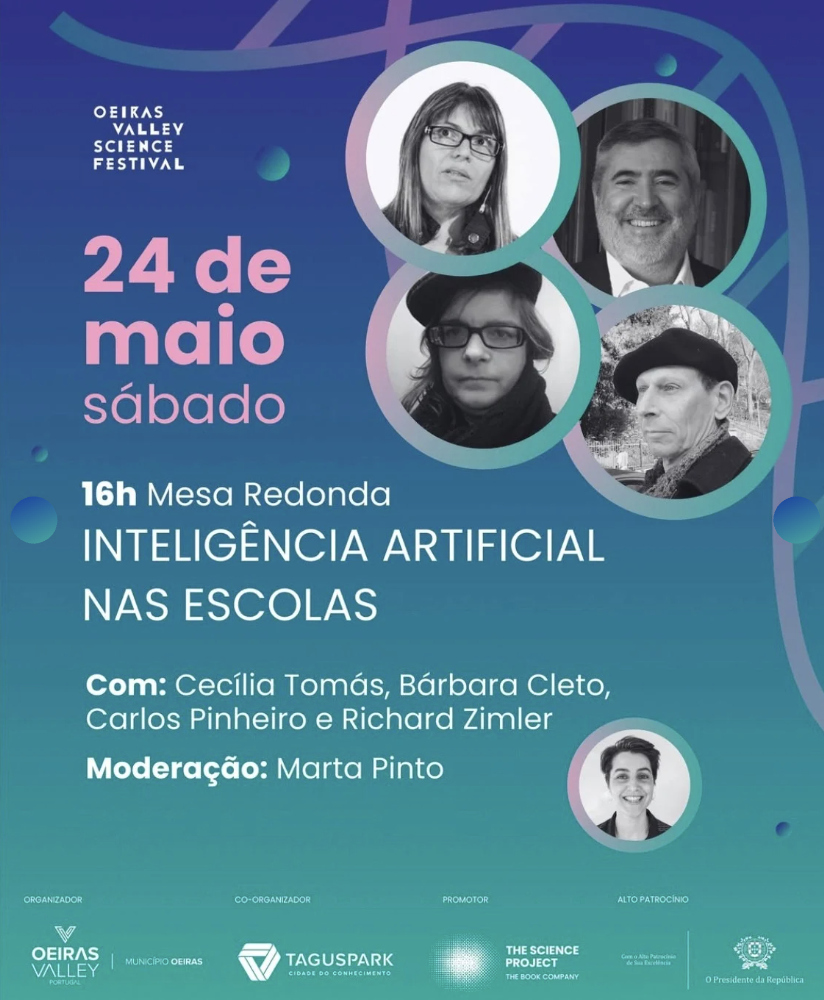
We were thrilled to take part in two days of inspiration, science, and education at the Oeiras Valley Science Festival!
Together with scientists, teachers, entrepreneurs, artists, writers, and journalists, we shared one mission: making knowledge about Artificial Intelligence accessible, engaging, and evidence-based for everyone.
Panel topics
As part of the program, AI Goes to School hosted a panel on how AI is being adopted in schools across Portugal, and the stories were truly inspiring:
- Cecília Tomás, philosophy teacher, showed how philosophy sessions with children in primary education, spark reflections about AI, what it means to be human, to be a friend, truth and consciousness.
- Richard Zimler, author of fiction and children’s’ books, read from his book Ernesto, the robot that painted sleepy and sweetness* – that he has taken to schools – , about a boy robot who feels and creates art, opening space for conversations on humanity, individuality, emotions and creativity.
- Bárbara Cleto, Secondary teacher of Computer Science, presented student projects that used AI to co-create solutions for local environmental challenges.
- Carlos Pinheiro, teacher librarian, shared how his school community collaboratively designed policies for responsible use of AI.
The panel raised an essential question:
How can we bring more of these practices to more schools?
Some powerful answers emerged:
- Embed civic and digital ethics across all subjects
- Train entire school communities in critical AI literacy
- Support student- and teacher-led AI projects
- Share and celebrate inspiring practices of AI in the classroom
We left with fresh insights, and important questions for our community:
- Is AI’s impact on learning positive or negative?
- How is it reshaping our relationship with education?
- How do we build trust with AI?
- How do we give students a voice in the digital world?
* Free translation of the book title Ernesto, the robot that painted sleepy and sweetness – only available in Portuguese.

